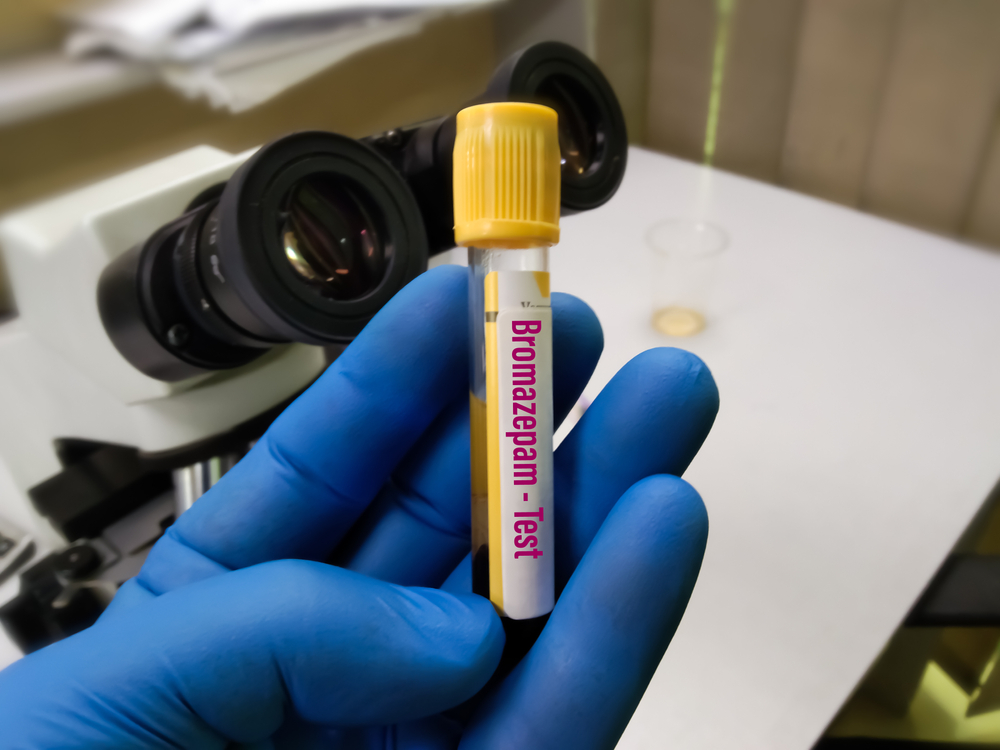Last Updated:
August 19th, 2025
Bromazepam Rehab Treatment | What to Expect
Bromazepam is most often prescribed for anxiety or panic and when it works, it can bring much-needed peace to your life. However, bromazepam can also be highly habit-forming and it’s surprisingly easy to cross that line between safe use and addiction. Bromazepam addiction can have serious physical, emotional and mental consequences but recovery is absolutely possible. Bromazepam addiction treatment can be both a safety net and a guide, helping you quit bromazepam safely and showing you why you don’t need it anymore.
What is bromazepam addiction treatment?
Bromazepam addiction treatment is when you get professional help to end an addiction. There are treatment programmes and centres across the UK and while they may have slight differences, there will generally be three phases you will go through:
- Bromazepam detox: Detox just means that you stop taking bromazepam and your body clears it all out. In the context of rehab, it means detoxing in a specialised treatment centre with experienced staff helping you through the tough moments safely.
- Bromazepam rehab: This is the therapy part of treatment that begins once you have detoxed successfully. It builds on the physical healing of detox and focuses on emotional, psychological and environmental parts of your addiction.
- Bromazepam aftercare: Aftercare is a programme of services and support that are provided post-rehab. These can vary but they are intended to lower the risk of relapse as you make the switch from treatment to your normal home life.
If you’re wondering whether you need bromazepam, ask yourself these questions:
- Are you running out of bromazepam faster than you used to?
- Have you noticed your memory getting fuzzy or losing track of conversations?
- Have friends or family started to worry about your bromazepam use?
- Does the idea of quitting bromazepam feel just as scary as what you’re experiencing now?
- Do you try to convince yourself and others you’re “fine” when deep down you feel anything but?
If you’re reading these questions and thinking, “Maybe it’s time to talk to someone”, here is how bromazepam addiction treatment works:
Struggling with an addiction? If you are ready to seek help, reach out to us today, and a member of our compassionate team will help you find the best option for starting your recovery journey.
Phase one: Bromazepam detox
Detox is the first part of every drug addiction recovery programme. It is when you allow your body to purge all the bromazepam so that your brain and vital systems can relearn how to manage without it.
Bromazepam detox is not a quick or easy process if you try to do it “cold turkey”. Bromazepam withdrawal symptoms involve far more than just cravings and they can overwhelm even the most determined of people in recovery.
Rather than stopping suddenly, your bromazepam detox team will slowly reduce your dose. This makes the process easier on your body and helps manage any withdrawal symptoms that might come up.
You will be given the time and care you need with healthy food, fluids and a quiet place to adjust to it all. Detox medication can be given if your body reacts too strongly and there will be nurses, doctors and therapists who can answer any questions you have.
Bromazepam withdrawal symptoms and detox timeline
Bromazepam has a relatively short to intermediate half-life so withdrawal symptoms can come on relatively quickly. The first few days can be especially intense, with the full bromazepam detox timeline looking something like this:
- Anxiety
- Nervous tension
- Muscle aches
- A jittery, wired feeling
- Feeling restless at night
- A sense of unease or irritability
- Stomach cramps and changes in appetite
- Panic attacks or surges of fear
- Shaking hands, twitching muscles and jerky movements
- Nausea, vomiting or diarrhoea
- Difficulty focusing or thinking clearly
- Strong bromazepam cravings
- Sadness not linked to anything in particular
- Emotional sensitivity
- Exhausting sleep disruptions
- Lingering cravings
- Mental fog
- Sleep problems
- Sudden surges of anxiety
- Trouble focusing
- Lack of energy or motivation
Even the hardest parts of bromazepam withdrawal become easier to face with a care team who knows what they’re doing. If post-acute symptoms linger, you will get all the help you need with them during the next part of your treatment.
Phase two: Bromazepam rehab
The second stage of your recovery is bromazepam rehab, which usually follows directly after detox. Being in the same place, surrounded by familiar faces, can really help you with what comes next so it is best to look for a treatment centre that offers detox and rehab together.
Bromazepam rehab is when you get to explore why you became addicted. This may include medicating for anxiety without therapy, past pain that bromazepam has been dulling or a stressful life that you have been escaping from.
Rehab gives you breathing room to slow down and look inward. The goal is to help you find practical, lasting ways to break your need for bromazepam and stay drug-free when life gets bumpy.
What to expect from bromazepam rehab
The best bromazepam rehab programmes focus on whole-person, holistic recovery. Deciding between programmes and centres is an important decision but you should ask whether they provide:
- One-on-one therapy to dig into your bromazepam addiction story and get difficult things off your chest
- Group discussions where you can hear from others who’ve also struggled and started to find their way
- Family therapy to repair trust or simply talk things through with loved ones
- CBT to challenge the habits and beliefs that have kept you stuck
- Gentle, expressive therapies like art, sound and meditation to process what’s hard to say
- Motivational Interviewing to help you stay clear-headed about why this change matters to you
Phase three: Aftercare and bromazepam relapse prevention
Once rehab ends, you won’t be expected to just go it alone. A strong aftercare plan gives you the backup you need to stay on course when real life kicks in. Here are the most useful elements to any effective aftercare programme:
Begin bromazepam addiction treatment today
Struggling with bromazepam addiction can feel like you’re completely alone but there are people ready to help. At Addiction Helper, we will match you with a rehab centre that understands what you’re facing and can support you through every step toward recovery. Contact us today and let us guide you forward.
Our compassionate team are ready and available to take your call, and guide you towards lasting the lasting addiction recovery you deserve.
Frequently Asked Questions
(Click here to see works cited)
- Anderson, Leigh Ann. “What is bromazepam used for?” Drugs.com, 3 February 2025, https://www.drugs.com/medical-answers/bromazepam-3569872/. Accessed 13 June 2025.
- Mind. “Withdrawal effects of benzodiazepines.” Mind, https://www.mind.org.uk/information-support/drugs-and-treatments/sleeping-pills-and-minor-tranquillisers/withdrawal-effects-of-benzodiazepines/. Accessed 13 June 2025.
- UK Rehab. “Bromazepam Addiction | Causes, Symptoms and Diagnosis.” UK Rehab, https://www.uk-rehab.com/prescription-drug-addiction/benzodiazepine/bromazepam/. Accessed 13 June 2025.



